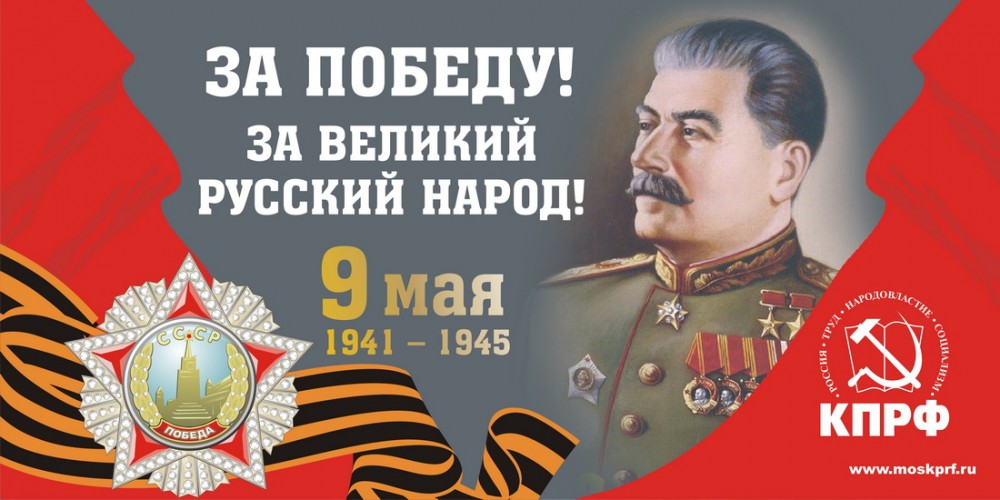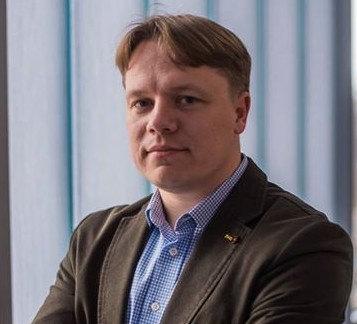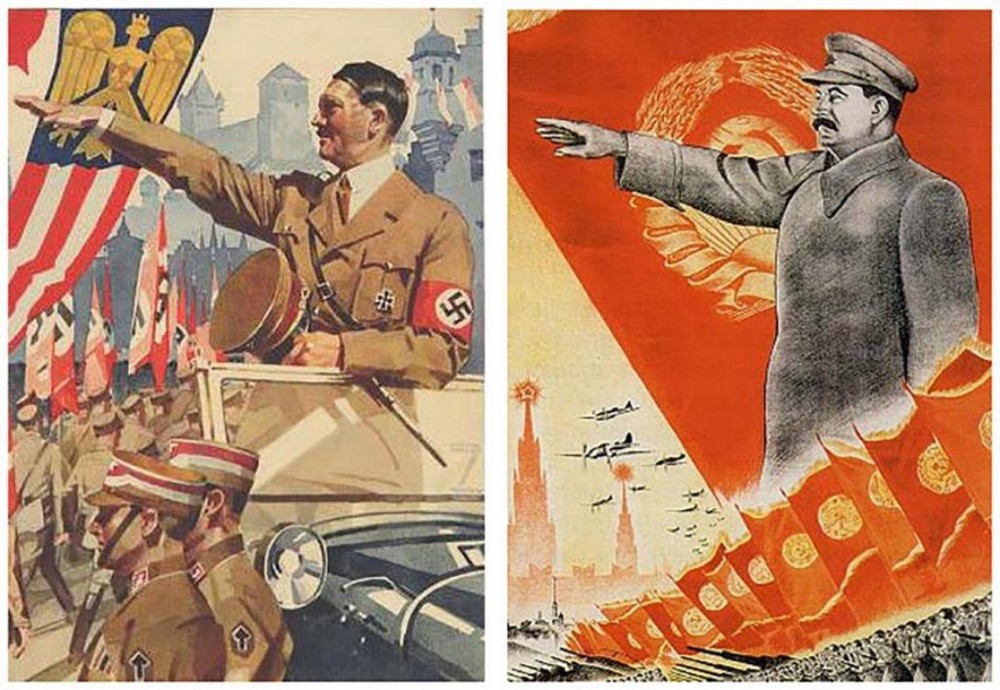On the April 4, I read an article titled “Spies from the reading room.” It described how during the last year at least 5 foreign researchers who were working in archives were deported from Russia. The formal reason was that they had been working in the archives while having a tourist visa.
On the April 9, another article: members of the public organization “Perm-36” were denied access to their own archive from the building of the former concentration camp.
Almost every month I read the Facebook page of the Russian researcher Sergei Prudovskiy, who wants access to the records of terror and crimes of the communist regime. He always received refusals because these documents still remain secret.
These are the news of April 2015 about access to Russian historical archives.
Why is it so important for modern Russia to have control over the Soviet past?
Each country has its narratives or myths that are a kind of cornerstone. For me, such as for France, it is the Great French Revolution. “Liberté, Égalité, Fraternité” is a phrase that always recurs in memory.
For modern Putin’s Russia such a constituent narrative is the myth of the Great Patriotic War from 1941 to 1945.
The cult of the “Great War” is used to explain current events. The focus of the story of the last war is not on the losses and sacrifices, but on glorifying militarism. The Great War is shown as a tool that is able to solve all social problems. But, most importantly, the myth says that it is the Russians who won the last great war. Russians are the ones who defeated fascism. This myth is well reinforced by the West accepting the collective name “Russians” to refer to the Red Army.
Another myth, based on the myth of the “Great Patriotic War,” suggests that those who defeated the Nazis can’t be bad, that a priori they cannot be perpetrators.
The myth of Russians as the sole winners of WWII
25 May 1945 may be considered the day when the myth about Russian people as the sole winner of the war was formed. On this day, the Kremlin hosted a great banquet in honor of the end of the war. During the banquet, Stalin declared a toast “for the Russian people.” At the beginning of the toast Stalin once mentioned “the Soviet people” and immediately identified them as the Russians. Then Stalin speaks only about the Russian people, thanks to whom this victory was possible.
Perhaps you saw a picture, which depicts Stalin and the inscription “For the Victory! For the great Russian people!”. It is very popular in modern Russia.

In 2010, Putin during one interview confirmed that the winner in that war is only the Russian people and they still would have won without the participation of other nations, meaning Ukrainians in the first place. This is what Putin said: “We would have won anyway, because we are a country of winners… By that I said, there are certain reasons. If we look at the statistics from the Second World War, it becomes clear that it is Russia that suffered the greatest losses in the Great Patriotic War – more than 70% of losses.”
This year, in January, on the eve of the commemoration of the victims in the concentration camp Auschwitz-Birkenau, the Polish Minister Grzegorz Schetyna said that soldiers who liberated this concentration camp were from the First Ukrainian Front. This in turn has caused deep resentment from Russian side, since the supposed key role of Russians in the liberation of Eastern Europe was not recognized. Moreover, it undermines the myth that it is only Russians who fought on the part of the Soviet Union.
Russia's cornerstone narrative is the myth of the Great Patriotic War from 1941 to 1945 Click To TweetThe Polish Minister said this on 21 January 2015, and already six days later, on January 27, the Russian Ministry declassified and published previously closed documents of the concentration camp’s liberation. In a statement published on the website of the Ministry of Defence the following was stated: “The publication of documents related to the release of prisoners from the Auschwitz concentration camp and the occupied territories of Poland by the Red Army is a continuation of the activities of military department aimed at preserving and protecting historical truth, and resisting attempts to tamper history and revise the results of the Great Patriotic War and the Second World War.”The most interesting of all documents is data on the membership of the 60th Army, which liberated the concentration camp Auschwitz-Birkenau. According to the lists the Russians were 47% (42 289) and Ukrainians 42% (38,041) of the total composition of the army.
This is an extremely good example of when Russia was forced to declassify and publish documents. Russia hoped to use the declassified information in the information war she was actively waging, but refused to do so in a way that dispelled the myth.
A bit later, the Ministry of Defense declassified and published two documents titled “The First Day of the War” and “On the eve of the War.” Of course, you won’t see even a hint about the Molotov-Ribbentrop pact signed in Moscow in August 1939, no mention of a joint parade of Nazi and Soviet troops in Brest in any of the documents.
The level of classified information in Russia is enormous
Even Russian historians and researchers agree that the level of classified information is enormous. For example, on 13 April 2015 historian Leonid Maksymenkov published an article entitled “Locked folders: hiding the archives of the Great Patriotic War.” The researcher analyzed how many documents and what exactly is classified in Stalin’s personal archive. It turned out that it’s not 5% of cases, as Russian archivists claimed, but at least 13%.
Maksymenkov notes that even the names of classified cases are classified and that in particular these cases are held from the public: coded telegrams of the General Staff of the Red Army, encryption of the Intelligence Directorate of the General Staff, and copies of military orders of Commissar of Defense.
Among the military documents from the start of the Second World War in 1939 to the beginning of the German-Soviet war of 1941 there are hidden reports of the Commissariat [наркомат] of Defense on military technology and the goals of the German delegation during economic negotiations with the USSR.
The information about the first three months of the war between the Third Reich and the Soviet Union is also closed. Certainly, the documents about the activities of the OGPU-NKVD, SMERSH and much more concerning the history of the World War II and deposited in the archives of Stalin are classified.
Despite the fact that Russia constantly talks about openness of the archives of the Great Patriotic War, there really is no openness, summarizes the historian.
The second myth: those that defeated the Nazis can’t be criminals
For us in Ukraine, it is important to talk about the deconstruction of the myth of the “Great Patriotic War” not only because it is widely used by Russia to mobilize their citizens in the war against Ukraine, but also because this myth gave a birth to the next myth – “those who defeated the Nazis cannot be criminals”.
It is well known that after liberating the concentration camps, the Soviet Union continued to use them as concentration camps, as it was in Majdanek. Some camps had been dismantled and shipped to the Soviet Union in order to continue to be used for the maintenance of Gulag prisoners.
The Kremlin especially does not want to open the archive documents concerning political repression. The so-called “Kharbintsy case” of 1930, when about 30 000 Russian immigrants from China returning to Bolsheviks Russia were repressed (of whom 20 000 were shot), is a classic story for the community of archivists in Ukraine and Russia. The history of this case is a vivid illustration of the situation of access to Russian archives.
Russian historian Sergey Prudovskiy became interested in this matter because his grandfather was arrested and forced to move in the Far East. In 2013 Sergey Prudovskiy wanted to get these documents to study, but was given a refusal, the formal explanation to which is that these documents contain secret information. It is considered that classified information in such cases particularly details NKVD methods. The Russian researcher appealed to the Moscow City Court with a request to receive the documents.
The Harbintsy Case was declassified in Ukraine. After the director of the Ukrainian Security Service Archives Ihor Kulyk learned about problems with accessing to these documents, they were digitized and published it in the public domain.
Although the documents were published on the Internet, Russian courts continue to deny giving them to the Russian historian. The latest refusal Sergey Prudovskiy received in February 2015 is from the Supreme Court of Russia.
Russia tries to extend its archival policy to other CIS countries
In October 2011 at the CIS summit in St. Petersburg an agreement was signed on archival obligations of the parties to coordinate their policy of declassification of the former Soviet archives. Apart from Russia Belarus, Armenia, Tajikistan and Uzbekistan signed the Agreement.
Under this agreement, all signatories have to agree among themselves what documents can be declassified and which are not. When one country is against declassifying, the document remains closed. This means that Russia will determine what from the Soviet-era archives to open and what is not. Which means they are not willing to open anything that could be contrary to the Russian vision of the past.
In 2011, it was reported that the Government of Ukraine, then headed by Azarov, also plans to join this agreement, which would mean closing Ukraine’s archives. We were able to challenge these attempts. We also realized that Ukraine needs to use the path of the Baltic countries and Central and Eastern Europe, who opened the archives of the communist secret services and other law enforcement agencies. That is when we started to develop a special law that would provide open access to the archives of the repressive machine Soviet Union. On 9 April 2015 Parliament of Ukraine supported the law.
Open access to the archives is extremely important for post-totalitarian societies. Access to the truth about the mode of action and the massive violations of human rights is a kind of fuse that repression is not going to be repeated. Closed archives make possible the manipulation of historical facts, opening access to some documents while closing others which do not fit into the overall narrative myth. Thus, control of the past makes it possible to manipulate the present.
[hr]Other materials from the conference
Usage of the topic of WWII in the Russian political discourse:
Memory of the Great Patriotic war in Russia’s expansionist policy
Occupation of Crimea repeats Latvia’s occupation by USSR
The “Great Patriotic War” as a weapon in the war against Ukraine
Russian media operates by law of war, tapping into Great Patriotic War myth









